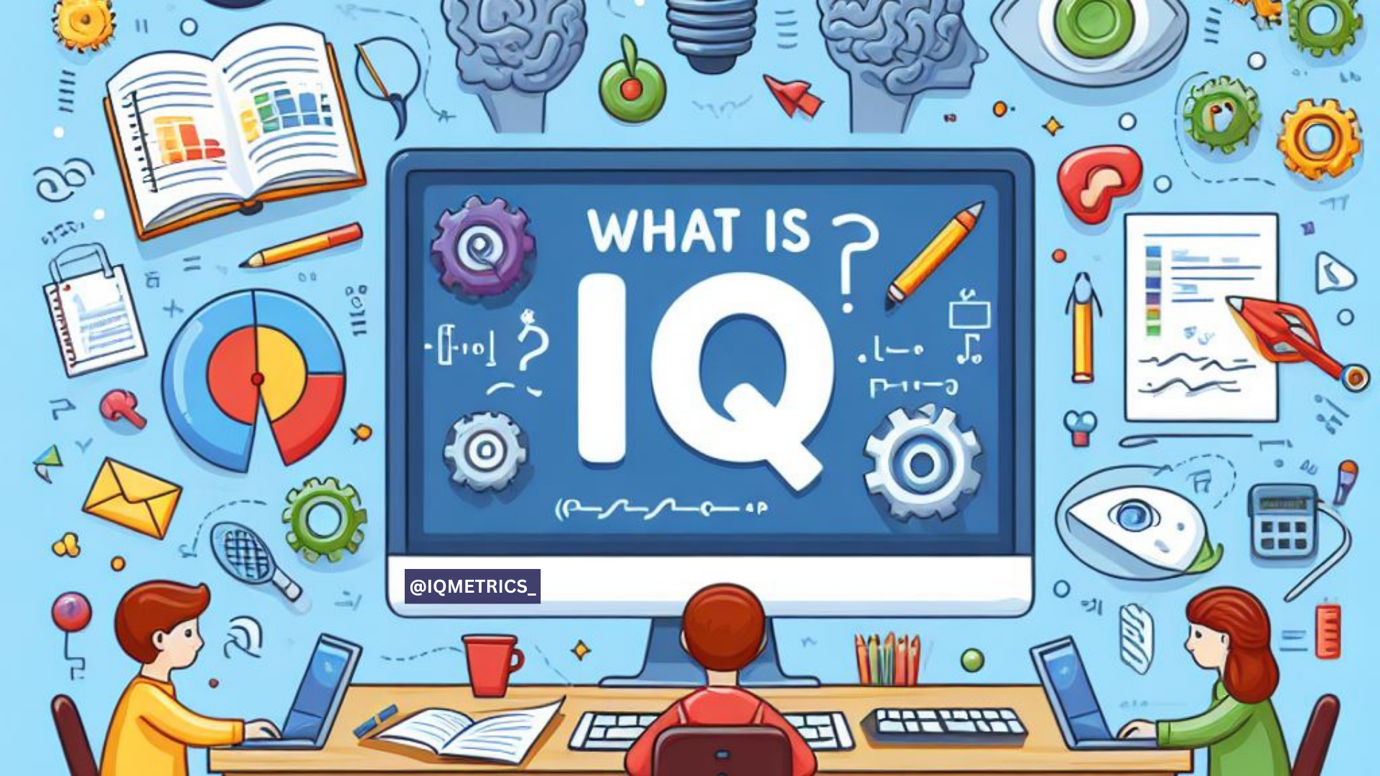What is Intelligence Quotient (IQ)?
Introduction:
Intelligence quotient, is commonly known as IQ, an important element of cognitive ability often used to measure person’s intellectual potential.
But how accurately IQ is measured ? In this blog, we explore the world of IQ testing and explain its significance.

History of IQ Testing –
IQ testing has a long, and unique history that goes past the twentieth century. French psychologist Alfred Binet and his co worker Simon Theodore developed the programme to measure IQ’s of the youngsters who may require further education support.
The initial IQ tests were made to find out youngsters mental age, differentiate their abilities to what is characteristics of their age.
Over several years IQ testing has grown and developed with different scoring methods, test are being more advanced and accurate.
What is Intelligence –
Before moving forward into IQ testing, it is important for us to realize what intelligence is. Intelligence is a tricky and complicated theory that surrounds a large analytical skills. It goes further than just intellectual abilities, memory, logical answering, and the ability to overcome new situations.
There are numerous theories of intelligence with some emphasizing a general intelligence component (known as the g-factor) that underpins all cognitive abilities and others proposing multiple intelligences, including linguistic, logical-mathematical, spatial, and musical intelligence. However, it is vital to remember that intelligence is not fixed and can be acquired and enhanced throughout time.
How is IQ measured?
Generally, IQ tests used by giving standardized tests that requires various analytical abilities. These tests are made to give a outcome that illustrate a person’s mental capability. The most typical method of achieving IQ tests is by differentiating between two individual’s tests score to a representative sample of the population, known as the norm group.
It is important to note that IQ tests should only be conducted and evaluated by skilled specialists to ensure their correctness and reliability. To interpret IQ scores, one must first grasp the test’s limits as well as the individual’s background and environment.
The components of IQ Tests –
IQ tests evaluate a wide range of cognitive abilities that are thought to contribute to intelligence. IQ tests have several significant components, including:
1. Verbal Comprehension : This element evaluate an individual’s skill to understand and manoeuvre language, including vocabulary, verbal reasoning, and grasping abilities.
2. Perceptual Reasoning : This element calculates an person’s skill to keep up and rate perceivable designs, solve mathematical problems and operate things mentally.
3. Working Memory: Working memory advert to person’s skill to keep up and manoeuvre information in their mind. It associates tasks such as remembering and rearranging numerical or alphabetic sequences.
4. Processing Speed : This element evaluate how swiftly a person can recollect and respond to optical information .It involves tasks such as identifying symbols or matching patterns under limited time.
These components offer a thorough evaluation of a person’s mental ability, giving more of a delicate understanding of their cognitive pros and cons.
The Significance of IQ Scores –
IQ scores have outstanding implications in various stages of life. They can give us the insights of an person’s mental ability, granting them to make important decisions about their career and educational paths. However it is crucial to know and recollect that Intelligence Quotient or IQ tests are just a piece of the puzzle and should not be the one and only factor of a person’s abilities or potential.
IQ can be effective for people who may require extra counselling or improvement in educational amenities. They can help teachers in developing focused aid and providing the necessary items to help people to unlock their full potential.
Besides, IQ scores have been related to different types of results, such as educational achievement and career evolution. Research recommends that people who has more IQ scores outperforms that has reasonably less IQ scores, they are more likely to attain superior educational levels, and are likely to have a much more successful jobs.
IQ and Academic Achievements –
There is a firm connection between IQ and academic expertness. Individuals with more IQ scores are most like to surpass others in academics .This is because of their higher mental caliber, such as decision making and problem-solving, are essential for having a successful academic career.
However, it is important to note that IQ is academic success is determined by factors other than intelligence quotient (IQ). Other factors such as eagerness, academic patterns, socio economic environment, plays a vital role. IQ scores should be taken into account to figure out and obtain logical understanding of a person’s skill and growth of their academic career.
Conclusion: Understanding and Interpreting IQ Scores –
To conclude, IQ is a fundamental factor of mental skill and it is often used to measure a person’s mental ability. IQ exams evaluate different mental skills, such as critical thinking, problem-solving, and memory to provide a statistical score that demonstrates an individual’s intelligence.
While IQ levels can provide useful information and impact, educational and job decisions, it is important to remember that they are only one part of the jigsaw puzzle. Intelligence is a complex concept that includes a variety of mental talents, as well as factors such as creativity, emotional intelligence, and practical skills, which all contribute to a person’s overall intelligence.


